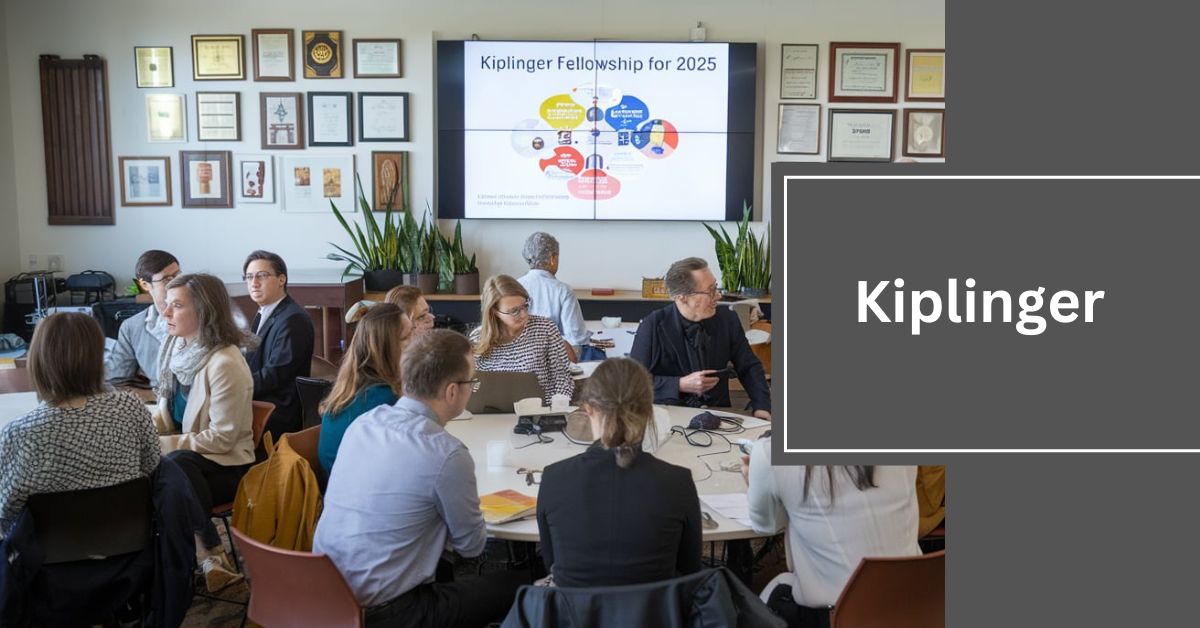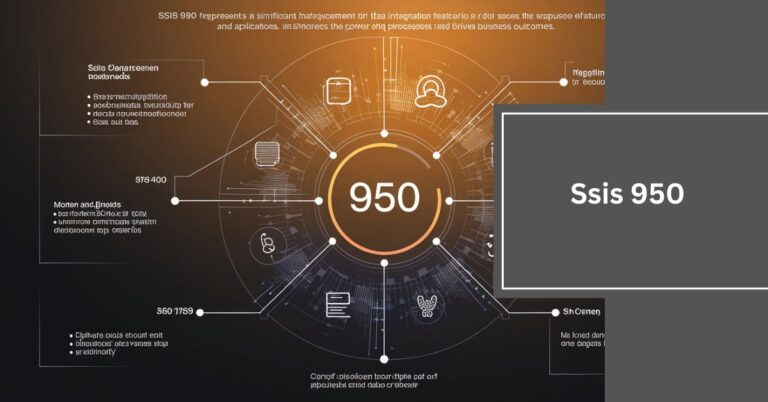Kiplinger – A New Era In Journalism!
The Kiplinger Fellowship, a prestigious program, is set to pave the way for innovation in journalism through its focus on artificial intelligence (AI) for the 2025 cohort.
This article will explore the objectives, significance, and future implications of the fellowship, and how it aligns with the evolving landscape of journalism in the digital age.
Introduction to the Kiplinger Fellowship:
The Kiplinger Fellowship has long been regarded as a beacon of excellence in journalism. Established to enhance the skills of journalists and provide them with the tools necessary for navigating a rapidly changing media.

landscape, the fellowship has opened its doors for applications for the 2025 cycle. This year’s theme is particularly exciting, as it emphasizes the integration of artificial intelligence into journalistic practices.
With applications open until November 1, 2024, the fellowship invites eligible journalists worldwide to explore how AI can transform their craft. This includes looking at various facets of journalism, from reporting and writing to sourcing and data analysis.
Read More: UFC Weight Classes – A Comprehensive Guide To All Divisions In 2024
Understanding the 2025 Focus:
1. The Significance of AI in Journalism:
The choice to center the 2025 Kiplinger Fellowship around AI is timely and relevant. AI technologies are becoming increasingly prevalent across various industries, including journalism.
2. Aiming for Innovation:
The Kiplinger Fellowship is not just about incorporating AI into existing practices but aims to inspire journalists to innovate. By encouraging participants to think critically about how AI can be harnessed, the fellowship seeks to cultivate a new generation of journalists who are adept at using technology to enhance their work while maintaining journalistic integrity.
The Role of AI in Journalism:
AI has the potential to revolutionize journalism by automating tasks that are repetitive or time-consuming. From transcribing interviews to analyzing vast datasets, AI tools can free journalists to focus on the creative aspects of their work. Additionally, AI can assist in uncovering insights that may not be readily apparent, thereby enhancing investigative journalism.
Applications of AI in Journalism:
- Automated Reporting: AI can generate news articles based on data inputs, particularly for routine events like sports scores or financial reports.
- Data Analysis: AI tools can sift through large datasets to find trends, patterns, and anomalies that can inform stories.
- Content Personalization: AI can help tailor content to specific audiences, enhancing engagement and relevance.
- Natural Language Processing (NLP): NLP technologies can improve the efficiency of writing and editing, ensuring clarity and coherence in articles.
Fellowship Objectives and Themes:

The Kiplinger Fellowship will address several key themes throughout its 2025 program. Each theme will focus on different aspects of AI’s integration into journalism.
1. Ethics and Public Trust:
One of the primary objectives of the fellowship is to delve into the ethical implications of using AI in journalism. Participants will explore questions surrounding transparency, accountability, and the preservation of public trust in the media. This is particularly critical as the rise of AI-generated content may blur the lines between fact and fiction.
2. Writing and Editing with AI:
The fellowship will also focus on the practical applications of AI in writing and editing. Journalists will learn how AI tools can assist in generating ideas, structuring articles, and refining their language. The goal is to empower journalists to harness AI as a collaborative tool rather than a replacement.
3. AI and Data Journalism:
Data journalism is increasingly becoming a cornerstone of investigative reporting. The fellowship will examine how AI can enhance data analysis, making it easier for journalists to uncover stories hidden within complex datasets. Participants will be trained in leveraging AI tools to gain insights and tell compelling narratives.
4. AI for Audio and Imaging:
With advancements in AI technology, audio and imaging are also evolving. The fellowship will address how AI can enhance multimedia storytelling, including podcasting and video journalism. Participants will learn about tools that can improve sound quality, automate video editing, and create more engaging audio-visual content.
5. Fakespotting:
In an era where misinformation spreads rapidly, the fellowship will also focus on using AI to combat false information. Participants will explore AI tools designed to identify and flag misleading content, helping journalists uphold their role as trusted sources of information.
Impact on Reporting and Writing:
The integration of AI into journalism will have profound effects on reporting and writing. Journalists will need to adapt to new workflows and embrace technology as an integral part of their craft.
1. Enhancing Creativity:
AI can be a powerful ally in the creative process. By automating mundane tasks, journalists can devote more time to brainstorming and developing innovative story ideas. This shift could lead to more engaging content that resonates with audiences.
2. Streamlining Workflows:
AI can streamline various aspects of journalism, from research to publication. Journalists can leverage AI for tasks such as fact-checking, data analysis, and content distribution, resulting in more efficient workflows and timely reporting.
3. Expanding Access to Resources:
With AI tools at their disposal, journalists can access a wealth of resources that were previously out of reach. This includes data analysis tools, language processing software, and multimedia editing applications, all of which can enhance the quality of their work.
Ethics and Public Trust in AI Journalism:

As the use of AI in journalism grows, so too do concerns about ethics and public trust. The Kiplinger Fellowship aims to address these challenges head-on, fostering discussions around responsible AI use in media.
1. The Need for Transparency:
Transparency is vital in maintaining public trust. Journalists must be upfront about how they use AI in their work, ensuring that audiences understand the role of technology in their reporting. This includes disclosing the use of AI-generated content and the sources of data utilized in stories.
2. Balancing Innovation with Responsibility:
While AI can enhance journalistic practices, it is crucial to balance innovation with ethical responsibility. Journalists must remain vigilant about the potential for bias in AI algorithms and strive to mitigate its effects on their reporting. This includes being mindful of the sources of data and ensuring diversity in perspectives.
AI in Data Journalism:
Data journalism has emerged as a powerful tool for investigative reporting, allowing journalists to uncover trends and stories hidden within numbers. The 2025 Kiplinger Fellowship will emphasize the role of AI in data journalism, providing participants with the skills needed to harness these tools effectively.
1. Tools and Techniques:
Participants will learn about various AI tools designed for data analysis. This includes software that can visualize data, uncover patterns, and perform predictive analytics. By mastering these techniques, journalists can produce in-depth, data-driven stories that captivate audiences.
2. Collaborating with Data Scientists:
The fellowship will also encourage collaboration between journalists and data scientists. By fostering interdisciplinary partnerships, participants can leverage the strengths of both fields to produce compelling stories that combine qualitative insights with quantitative analysis.
Innovative Uses of AI in Audio and Imaging:
The rise of AI technologies has transformed the way journalists create and distribute audio and visual content. The Kiplinger Fellowship will explore these innovations, equipping participants with the skills to enhance their multimedia storytelling.
1. AI in Podcasting:
Podcasting has gained immense popularity in recent years, and AI can play a crucial role in improving the quality of audio content. From automated editing tools to AI-generated voiceovers, participants will learn how to leverage these technologies to create engaging and polished podcasts.
2. Enhancing Visual Storytelling
AI tools can also enhance visual storytelling by automating video editing, improving image quality, and creating interactive graphics. By mastering these techniques, journalists can produce visually compelling content that captures the attention of their audiences.
Fakespotting:

Misinformation poses a significant challenge to journalism, and the Kiplinger Fellowship will equip participants with the tools to combat this issue. Fakespotting is an essential skill that journalists must develop in an era where false information can spread rapidly.
1. AI Tools for Fakespotting:
Participants will explore various AI tools designed to identify and flag misleading content. These technologies can analyze the credibility of sources, verify facts, and detect deepfake images or videos. By incorporating these tools into their workflows, journalists can uphold the integrity of their reporting.
2. Educating Audiences:
In addition to using AI for fakespotting, journalists must also educate their audiences about misinformation. The fellowship will emphasize the importance of media literacy, equipping participants with the skills to teach their audiences how to critically evaluate the information they encounter.
Read More: Hailee Steinfeld Height – A Comprehensive Analysis!
The Future of Journalism with AI:
The integration of AI into journalism represents a significant shift in the industry. As the Kiplinger Fellowship prepares to embark on this journey, it is essential to consider the broader implications for the future of journalism.
1. Evolving Skill Sets:
As AI technologies continue to evolve, journalists will need to adapt their skill sets accordingly. This includes developing technical skills to effectively use AI tools, as well as honing critical thinking and ethical reasoning abilities to navigate the complexities of AI in journalism.
2. The Role of Traditional Journalism:
While AI will play a significant role in shaping the future of journalism, traditional practices will remain essential. Journalists must continue to uphold the values of investigative reporting, storytelling, and community engagement, ensuring that AI enhances rather than replaces these foundational elements.
FAQs:
1. What is the Kiplinger Fellowship?
The Kiplinger Fellowship is a prestigious program designed to enhance the skills of journalists by providing them with tools and resources to navigate the evolving media landscape.
2. What is the focus of the 2025 Kiplinger Fellowship?
The 2025 Kiplinger Fellowship will focus on the integration of artificial intelligence in journalism, exploring its applications, implications, and ethical considerations.
3. Who can apply for the Kiplinger Fellowship?
The fellowship is open to eligible journalists globally, encouraging diversity and inclusion in its cohort.
4. What are some key themes of the 2025 fellowship?
Key themes include ethics and public trust, writing and editing with AI, AI in data journalism, innovative uses of AI in audio and imaging, and combating misinformation.
5. How can AI enhance reporting and writing?
AI can automate mundane tasks, streamline workflows, and provide insights from data, allowing journalists to focus on creativity and storytelling.
6. What ethical concerns are associated with AI in journalism?
Ethical concerns include transparency, accountability, and potential biases in AI algorithms, which can impact public trust in media.
7. What skills will participants develop in the fellowship?
Participants will develop skills in using AI tools for data analysis, multimedia storytelling, and fakespotting, as well as enhancing their ethical reasoning abilities.
8. How does AI contribute to combating misinformation?
AI tools can identify and flag misleading content, helping journalists uphold the integrity of their reporting and educate audiences about media literacy.
9. What is the application deadline for the 2025 Kiplinger Fellowship?
The application deadline is November 1, 2024, at midnight Eastern Time.
10. Why is the Kiplinger Fellowship important for the future of journalism?
The fellowship plays a crucial role in preparing journalists for the challenges of the digital age, equipping them with the skills needed to adapt to new technologies while maintaining ethical standards.
Conclusion:
The Kiplinger Fellowship for 2025 is poised to lead the way in exploring the intersection of journalism and artificial intelligence. By equipping participants with the tools and knowledge necessary to navigate this evolving landscape.
The fellowship aims to empower journalists to harness the potential of AI while upholding ethical standards and public trust. As the media landscape continues to shift, initiatives like the Kiplinger Fellowship will play a crucial role in shaping the future of journalism.
Read More:







